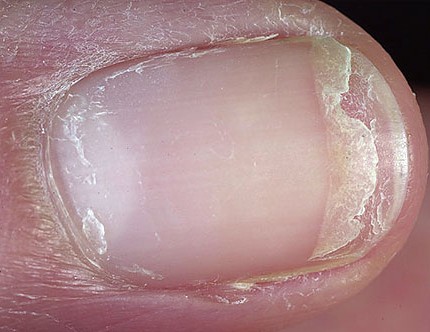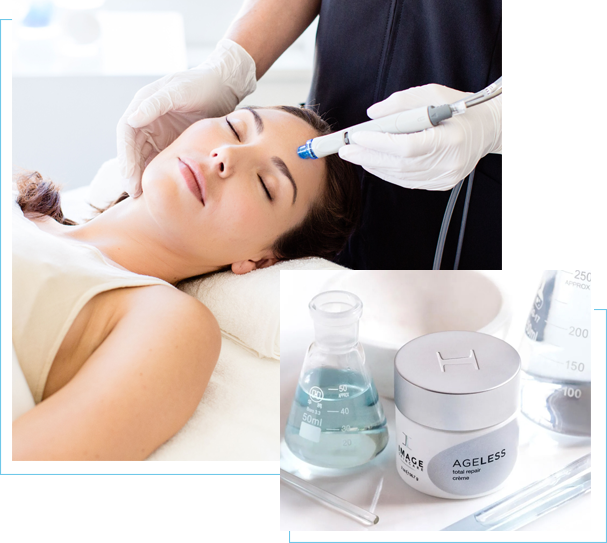
Cracked Nails?
One of the more frequent complaints that I hear about in the office is dry cracked nails. It may not be the issue that brings someone to the clinic, but its very often one of those, “Oh, by the way” questions.
Why are my nails brittle?
After having nails that were perfect for decades, many people suddenly find themselves dealing with nails that have become dry, brittle, and crack easily. What happened?
The single most important cause of dry, cracked, brittle nails is dehydration of the nails. Fingernails are primarily made up of a protein called keratin, the same type of protein that makes hair. However, nails are also usually about 10% water and this water content in essential to keeping the nails flexible. Well hydrated nails will give and bend when traumatized, keeping them from breaking from all the ordinary things that happen to them each day, like tapping on an iPhone, helping to tear open a package, or scratching your back. When the nails are dry, they lose this flexibility and instead of bending and giving, they crack and split.
What makes nails dry?
- Increased exposure to soaps, cleansers, solvents and rough work. Washing your hands often, doing a lot of dishes, household chores (especially everything that goes along with taking care of babies), bartending, and food preparation all cause significant drying of the nails. Soaps and solvents are very good at drying the nails because they remove oils from the nails that ordinarily help keep moisture in. Immersion in water for a long time eventually does the same thing as well.
- Normal Aging. As we age, our bodies produce less and less of the natural hydrating oils that protect our skin and nails from dehydration. If you have a tendency toward dry skin to begin with, it means you will probably have dry nails sooner rather than later.
- Improper nail grooming. Nail biting certainly is very rough on the nails, but filing nails incorrectly can also damage them. Clipping dry nails can make the splits worse, so it is best to clip nails when they are moist. It is also best to keep filing to a minimum and use it only to take care of rough edges left after clipping.
- Nail hardeners. Ironically, these products often make things worse. For the first week after you start using them, you might see some improvement, but in time they alcohols and other solvents in them tend to remove oils from the nails and make the dryness worse.
Fixes for cracked, dry, or brittle nails:
- Hydration. Hydration. More hydration. But how? The key to upping the water content of the nails to restore their flexibility and durability is to apply heavy duty moisturizers. Essentially, you are trying to supplement the oils that are bodies usually make and replace the oils that have been stripped by cleaning products and wet work. The thicker the better because you need it to stay put long enough to make a difference. Plain vaseline is probably ideal, but other thick ointments like Bag Balm and Aquaphor are also effective. It also not likely that you could ever moisturize your nails often enough. But, you will get the most benefit doing it IMMEDIATELY after your hands have become wet, so after showers and after hand washing are the most important times to do it.
- Gloves for wet work. Whenever you are digging in for battle with a whole sink full of dishes, a house that needs cleaning, or going to be handling any kind of solvent, wearing gloves will definitely help keep your nails from suffering the consequences.
What about diet?
Unless your diet is really truly awful, its unlikely that dietary changes will make a significant impact on your nails. A lot has been written about different supplements including Vitamin A, B6, B12, C, D, E, selenium, calcium, zinc, iron or copper and nail health, but there aren’t any studies that support any of these claims. To me, the list sounds like a Centrum commercial, so I just recommend a generic multivitamin from my favorite local wholesale club.


